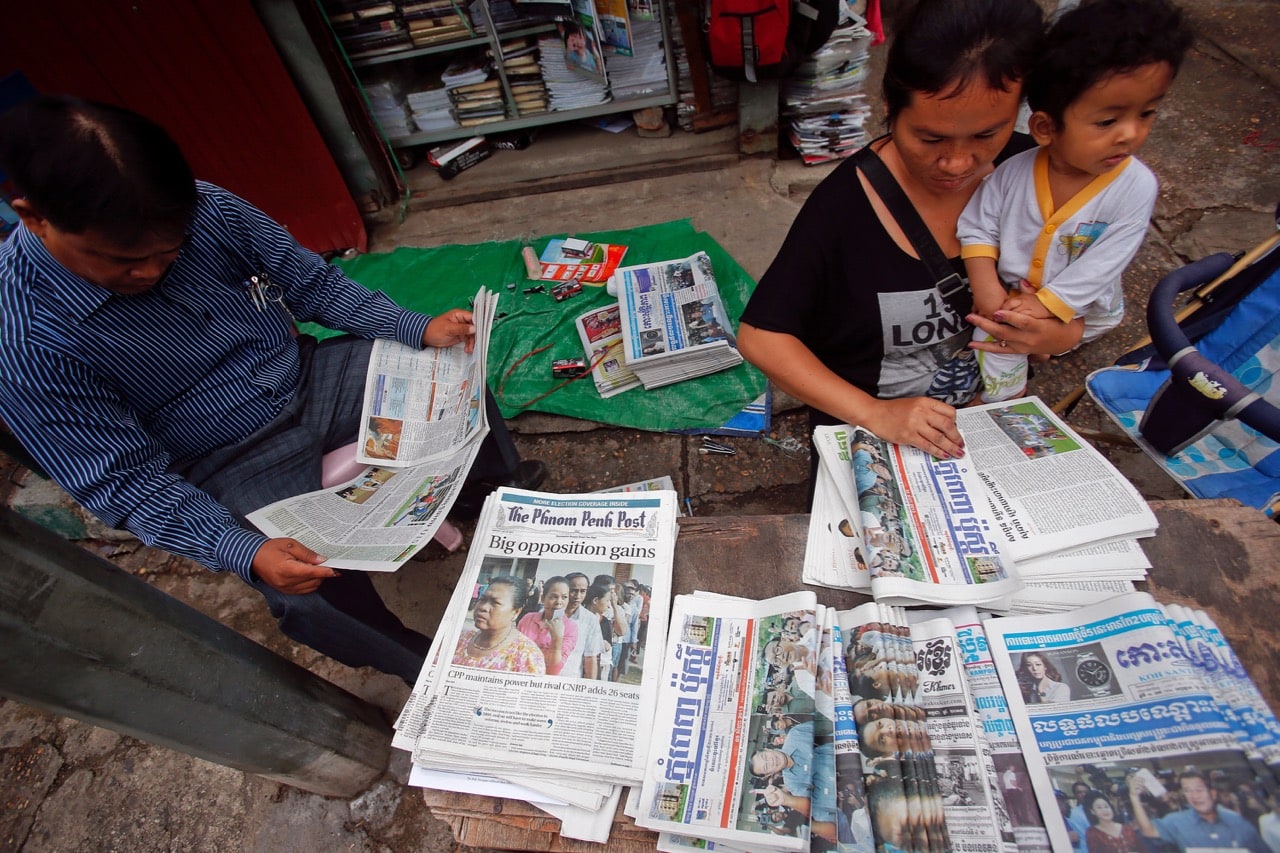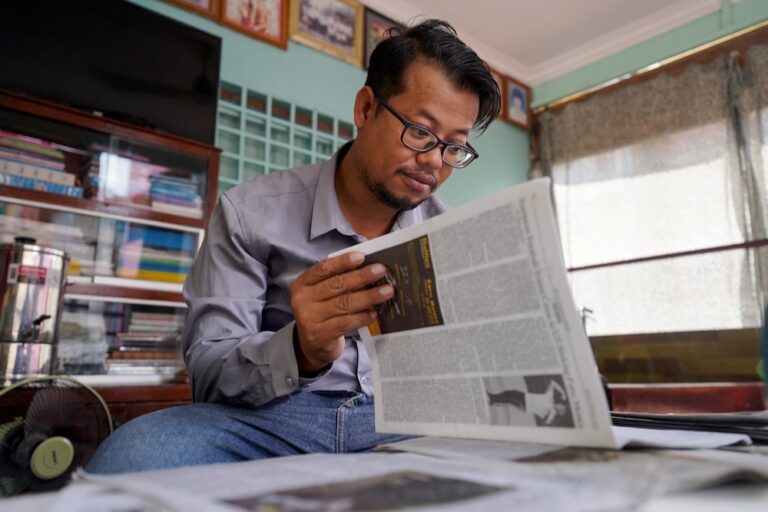One daily newspaper, two foreign media services, and three local radio stations were ordered closed by the Cambodian government in the past six weeks.
This statement was originally published on seapa.org on 25 August 2017.
The Cambodian government has launched over the past 3 weeks a systematic attack aimed at silencing independent media in the country with at least six media outlets being shutdown, forced off the air, or facing closure.
One daily newspaper, two foreign media services and three local radio stations have been targeted in the clampdown.
The English-language Cambodia Daily newspaper learned about a US$6.3 million claim in back taxes and penalties after an August 4, 2017 letter from the Tax Department was leaked by a government-aligned newspaper. The letter threatened the closure of the 25-year old daily and seizure of its assets unless it was able to pay its dues by September 4.
On August 11, a letter from the Ministry of Economy and Finance asked the Ministry of Information (MOI) to take action against Radio Free Asia (RFA) and Voice of America (VOA) in Cambodia for not being registered with the tax department and not having proper media licenses.
The MOI on August 21 abruptly revoked the license of Moha Nokor FM 93.5, which broadcasts RFA and VOA content, as well as opposition party programs. No specific reason was cited for the revocation and the radio station could only comply with the order when they received it that morning.
The Voice of Democracy (VOD) also experienced disruption after its broadcasting signal was on Tuesday (August 22) bumped from 106.5 Mhz to 106.7 Mhz for “admin and technical problems”. A statement from the management of the radio station released on Friday (August 25) said that VOD broadcasts on 106.7 mhz were also stopped on Wednesday, and in three provincial stations, namely 91.25 Mhz in Siem Reap, 91.25 Mhz in Battambang, and 101 Mhz in Banteay Meanchey, also stopped broadcasts on Thursday.
The Women’s Media Center FM 102 was also affected as the station’s signal went silent before an 8 p.m. scheduled broadcast of a VOA program.
Unclear
It is not clear why Moha Nokor’s license was suspended since owners claim that they have been following broadcasting guidelines and pay taxes.
However, Moha Nokor station manager Yi Chhor Vorn was quoted in a Cambodia Daily report that authorities cited air-time sales to clients as the reason why they were closed.
Meanwhile, the management of Cambodia Daily have questioned the methods of the government in the release of the newspaper’s alleged back tax liabilities. They are questioning how the tax authority arrived at the figure without inspecting the company’s auditing books. The company has thus requested a “true audit” of its books to determine actual tax liabilities.
Moreover, they claimed that the Daily has operated as a non-profit foundation until April this year, after the sales of its assets to a regular company. The government’s tax payment demands date back to 2007.
Meanwhile, both RFA and VOA buy airtime from existing licensed radio stations, including Moha Nokor FM. As content producers, both do not have obligation to apply for licenses for broadcast waves in Cambodia or to pay taxes for broadcasting.
Cambodia does not have clear regulations over media licensing. Licenses are issued by the Ministry of Information to both print and broadcast outlets. While print media licensing is governed by articles 8 and 9 of the Press Law, there is no specific law that guides the Ministry for issuing broadcast licenses, apart from frequency regulation.
Call for transparency, fairness
“It appears that the Cambodian government has been using legal technicalities to hide behind its real aim of silencing independent voices,” Edgardo Legaspi, SEAPA executive director said. These moves also coincide with a broad review and threats to critical civil society organizations under the newly enacted Law on NGOs, including reviews of tax registrations, as with RFA and VOA.
Legaspi said that “The government has prioritized shutting down of media outlets over providing fair procedures to address their liabilities. For instance, the Cambodia Daily has not been given the opportunity to appeal or negotiate their case before the tax department, with officials demanding an all-or-nothing payment of the newspaper’s alleged tax dues.”
Similarly in the case of Moha Nokor FM, “it is not fair to target a carrier of content for the alleged lapses of content providers,” said the SEAPA executive director.
Given this context, SEAPA called on the government to determine the media outlet’s liabilities in a transparent and fair manner.
Legaspi said that the Cambodian government “must not arbitrarily use its licensing powers as the first recourse to address taxation matters, as closure of media outlets is too harsh a measure to deal with the alleged offenses.”
SEAPA observed that these developments represent actions by the government against independent media in Cambodia, that can only be seen as a widening crackdown on critical voices, including civil society.
These drastic measures against independent media belie a seriously threatening political undertone and do not bode well for press freedom in Cambodia. Given that elections are scheduled next year, access to information from diverse views is crucial for the public to participate and engage in governance.
SEAPA urges the immediate restoration of the programs and licenses of the affected radio stations and to ensure that actions on media entities are in line with the law and fair procedure.



